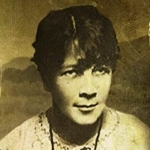Background
Rand was born Alisa Zinovyevna Rosenbaum on February 2, 1905, to a Russian-Jewish family in Saint Petersburg. Her father, Zinovy Rosenbaum, was a prosperous pharmacist and her mother was socially ambitious and religiously observant.


1949
San Fernando Valley, Los Angeles County, California, United States
Writer Ayn Rand sitting at her desk in her San Fernando Valley house designed by Richard J. Neutra; smiling and eyes looking away from the camera, she is wearing a gray button-down blouse and has both hands on the desk; beyond her is a deck with boxed plants and a metal chair with a cushion and a view of the Valley.

1974
1600 Pennsylvania Ave NW, Washington, DC 20502, United States
President Gerald R. Ford, Alan Greenspan's mother Rose Goldsmith (back to camera), Alan Greenspan, writer Ayn Rand, and Rand's husband Charles Francis "Frank" O'Connor, after Greenspan's swearing in as Chairman of the Council of Economic Advisors in the Oval Office, September 4, 1974, Washington, D.C. (Photo by David Hume Kennerly)
1947
United States
Ayn Rand testifying at HUAC meeting in 1947 calling movie Song of Russia communist propaganda.
1947
United States
Ayn Randis is shown on the stand as she testified at opening session of hearings into alleged Communistic activities in this motion picture industry.
1947
United States
Author Ayn Rand holding cigarette in holder as she sits during House Un-American Affairs committee hearings in which she testified that the Hollywood movies Mission to Moscow & Song of Russia were pro-Russian propoganda.
1949
San Fernando Valley, Los Angeles County, California, United States
Writer Ayn Rand sitting at her desk in her San Fernando Valley house designed by Richard J. Neutra; smiling and eyes looking away from the camera, she is wearing a gray button-down blouse and has both hands on the desk; beyond her is a deck with boxed plants and a metal chair with a cushion and a view of the Valley.
1951
United States
Ayn Rand and Mrs. Lela Rogers in 1951.
1951
United States
Mrs. Lela Rogers, attorney Eugene D Williams and Ayn Rand O'Connor in 1951.
1957
Manhattan, New York City, New York, United States
Ayn Rand standing in front of the Grand Central building, midtown Manhattan, New York City.
1974
1600 Pennsylvania Ave NW, Washington, DC 20502, United States
President Gerald R. Ford, Alan Greenspan's mother Rose Goldsmith (back to camera), Alan Greenspan, writer Ayn Rand, and Rand's husband Charles Francis "Frank" O'Connor, after Greenspan's swearing in as Chairman of the Council of Economic Advisors in the Oval Office, September 4, 1974, Washington, D.C. (Photo by David Hume Kennerly)
Young Ayn Rand
Young Ayn Rand
United States
Author Ayn Rand chatting with admirers at National Book Awards.
Post stamp with the image of Ayn Rand

















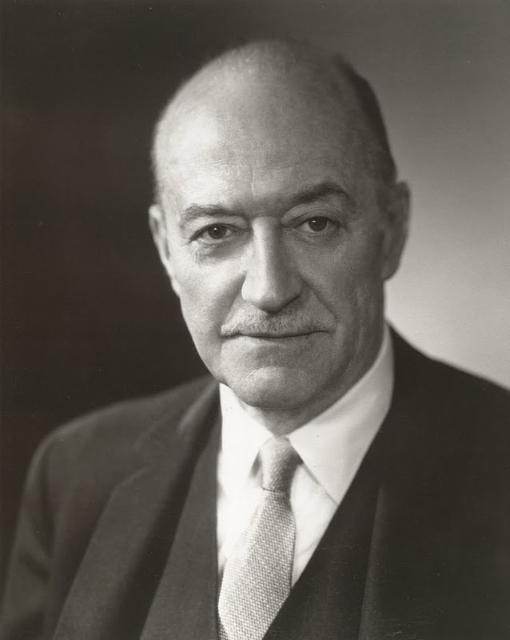

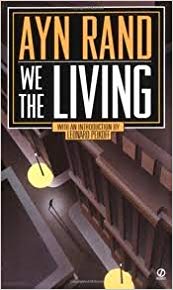
(We the Living is the debut novel of the Russian-American ...)
We the Living is the debut novel of the Russian-American novelist Ayn Rand. It is a story of life in post-revolutionary Russia and was Rand's first statement against communism.
https://www.amazon.com/We-Living-Publisher-Signet-Anv/dp/B004TQJ6W4/?tag=2022091-20
1936
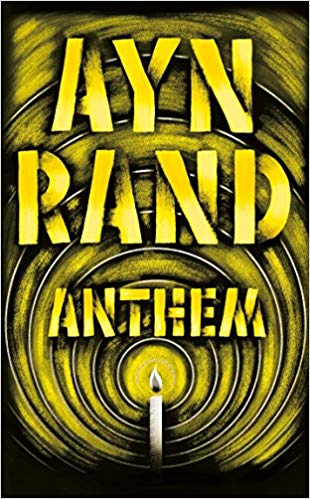
(Anthem is Ayn Rand’s classic tale of a dystopian future o...)
Anthem is Ayn Rand’s classic tale of a dystopian future of the great “We” - a world that deprives individuals of a name or independence - that anticipates her later masterpieces, The Fountainhead and Atlas Shrugged.
https://www.amazon.com/Anthem-Ayn-Rand/dp/0451191137/?tag=2022091-20
1938
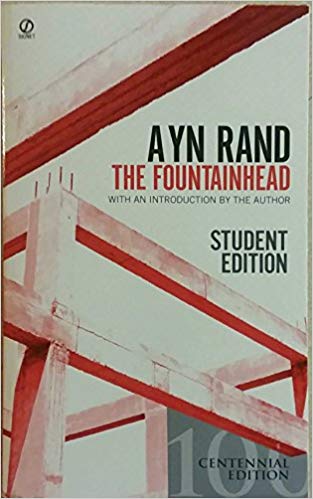
(The Fountainhead's protagonist, Howard Roark, is an indiv...)
The Fountainhead's protagonist, Howard Roark, is an individualistic young architect who chooses to struggle in obscurity rather than compromise his artistic and personal vision.
https://www.amazon.com/Fountainhead-Student-Ayn-Rand/dp/0451231007/?tag=2022091-20
1943
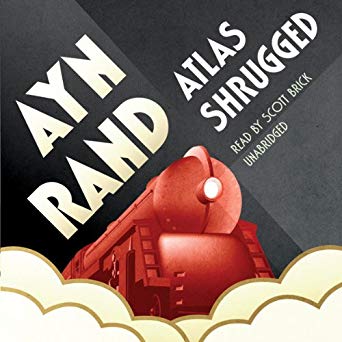
(In a scrap heap within an abandoned factory, the greatest...)
In a scrap heap within an abandoned factory, the greatest invention in history lies dormant and unused. By what fatal error of judgment has its value gone unrecognized, its brilliant inventor punished rather than rewarded for his efforts? In defense of those greatest of human qualities that have made civilization possible, one man sets out to show what would happen to the world if all the heroes of innovation and industry went on strike. Is he a destroyer or a liberator? And why does he fight his hardest battle not against his enemies but against the woman he loves? Tremendous in scope and breathtaking in its suspense, Atlas Shrugged is Ayn Rand's magnum opus, an electrifying moral defense of capitalism and free enterprise which launched an ideological movement and gained millions of loyal fans around the world.
https://www.amazon.com/Blackstone-Audio-Inc-Atlas-Shrugged/dp/B001MXQ7AQ/?tag=2022091-20
1957
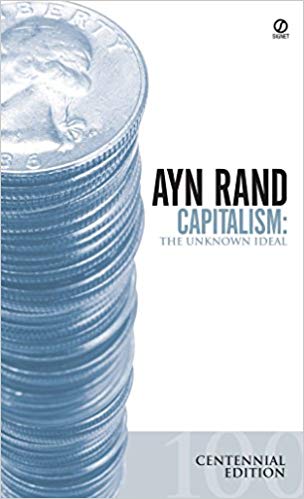
(In this series of essays, Ayn Rand presents her stand on ...)
In this series of essays, Ayn Rand presents her stand on the persecution of big business, the causes of war, the default of conservatism, and the evils of altruism. The foundations of capitalism are being battered by a flood of altruism, which is the cause of the modern world's collapse. This is the view of Ayn Rand, a view so radically opposed to prevailing attitudes that it constitutes a major philosophic revolution. Here is a challenging new look at modern society by one of the most provocative intellectuals on the American scene.
https://www.amazon.com/Capitalism-Ideal-Ayn-Rand/dp/0451147952/?tag=2022091-20
1966
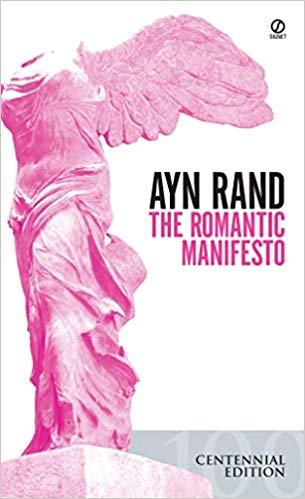
(In this beautifully written and brilliantly reasoned book...)
In this beautifully written and brilliantly reasoned book, Ayn Rand throws a new light on the nature of art and its purpose in human life. Once again Miss Rand eloquently demonstrates her refusal to let popular catchwords and conventional ideas stand between her and the truth as she has discovered it. The Romantic Manifesto takes its place beside The Fountainhead as one of the most important achievements of our time.
https://www.amazon.com/Romantic-Manifesto-Philosophy-Literature-Shakespeare/dp/0451149165/?tag=2022091-20
1969
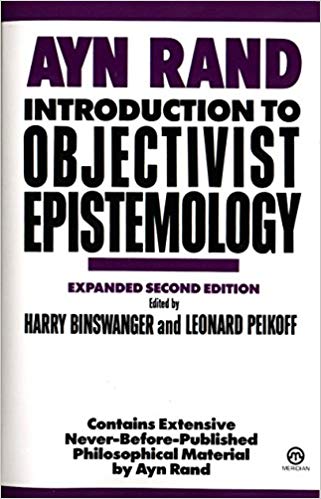
(Today man's mind is under attack by all the leading schoo...)
Today man's mind is under attack by all the leading schools of philosophy. We are told that we cannot trust our senses, that logic is arbitrary, that concepts have no basis in reality. Ayn Rand opposes that torrent of nihilism, and she provides the alternative in this eloquent presentation of the essential nature - and power - of man's conceptual faculty. She offers a startlingly original solution to the problem that brought about the collapse of modern philosophy: the problem of universals.
https://www.amazon.com/Introduction-Objectivist-Epistemology-Expanded-Second/dp/0452010306/?tag=2022091-20
1979
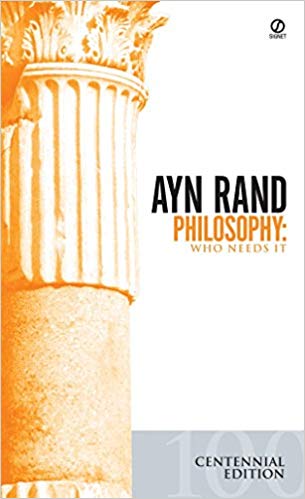
(This collection of essays was the last work planned by Ay...)
This collection of essays was the last work planned by Ayn Rand before her death in 1982. In it, she summarizes her view of philosophy and deals with a broad spectrum of topics. According to Ayn Rand, the choice we make is not whether to have a philosophy, but which one to have: rational, conscious, and therefore practical; or contradictory, unidentified, and ultimately lethal. Written with all the clarity and eloquence that have placed Ayn Rand’s Objectivist philosophy in the mainstream of American thought, these essays range over such basic issues as education, morality, censorship, and inflation to prove that philosophy is the fundamental force in all our lives.
https://www.amazon.com/Philosophy-Who-Needs-Ayn-Rand/dp/0451138937/?tag=2022091-20
1982
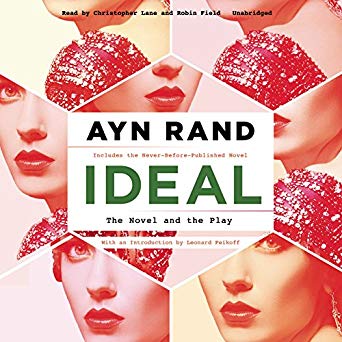
(Author Ayn Rand's novel Ideal, available for the first ti...)
Author Ayn Rand's novel Ideal, available for the first time ever - a landmark event for fans of the groundbreaking philosopher. Originally conceived as a novel but then transformed into a play by Ayn Rand, Ideal is the story of beautiful but tormented actress Kay Gonda. Accused of murder, she is on the run and turns for help to six fans who have written letters to her, each telling her that she represents their ideal - a respectable family man, a far-left activist, a cynical artist, an evangelist, a playboy, and a lost soul. Each reacts to her plight in his own way, providing a glimpse into their secret selves and their true values. In the end, their responses to her pleas give Kay the answers she has been seeking. Ideal was written in 1934 as a novel, but Ayn Rand thought the theme of the piece would be better realized as a play and put the novel aside. Now both versions of Ideal are available for the first time ever to the millions of Ayn Rand fans around the world, giving them a unique opportunity to explore the creative process of Rand as she wrote first a book then a play and the differences between the two.
https://www.amazon.com/Ideal-Novel-Play/dp/B01092S8G6/?tag=2022091-20
2015
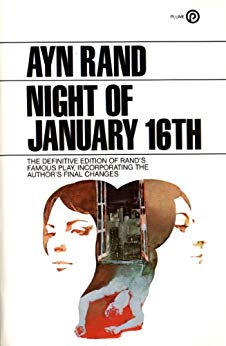
(To the world, he was a startlingly successful internation...)
To the world, he was a startlingly successful international tycoon, head of a vast financial empire. To his beautiful secretary-mistress, he was a god-like hero to be served with her mind, soul, and body.
https://www.amazon.com/Night-January-16th-Ayn-Rand-ebook/dp/B004IATCSY/?tag=2022091-20
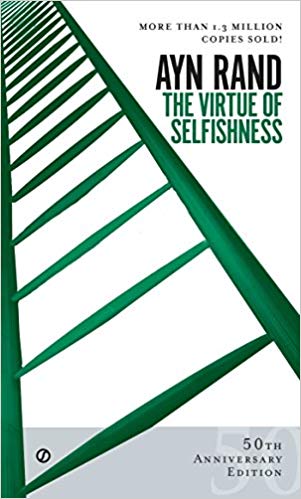
(A collection of essays that sets forth the moral principl...)
A collection of essays that sets forth the moral principles of Objectivism, Ayn Rand's controversial, groundbreaking philosophy. In this series of essays, Rand asks why man needs morality in the first place and arrives at an answer that redefines a new code of ethics based on the virtue of selfishness.
https://www.amazon.com/Virtue-Selfishness-Fiftieth-Anniversary/dp/0451163931/?tag=2022091-20
Rand was born Alisa Zinovyevna Rosenbaum on February 2, 1905, to a Russian-Jewish family in Saint Petersburg. Her father, Zinovy Rosenbaum, was a prosperous pharmacist and her mother was socially ambitious and religiously observant.
After being tutored at home, Alissa Rosenbaum, the eldest of three children, was enrolled in Stoiunina Gymnasium where she excelled academically but was socially isolated. Following the Russian Revolution of 1917, her father’s shop was confiscated by communist authorities, an event she deeply resented. As a student at Leningrad State University (present Saint Petersburg State University), she studied history and became acquainted with the works of Plato and Aristotle. After graduating in 1924, she enrolled in the Russian State Institute of Performing Arts, hoping to become a screenwriter.
The arrival of a letter from cousins in Chicago gave her an opportunity to leave the country on the pretext of gaining expertise that she could apply in the Soviet film industry. Upon her arrival in the United States in 1926, she changed her name to Ayn Rand. After six months in Chicago, she moved to Hollywood, where a fortuitous encounter with the producer Cecil B. DeMille led to work as a movie extra and eventually to a job as a screenwriter. Soon hired as a filing clerk in the wardrobe department of RKO Radio Pictures, Inc., she rose to head of the department within a year, meanwhile writing stories, plays, and film scenarios in her spare time. She became an American citizen in 1931.
Rand’s first successful play, Night of January 16th (1933; originally titled Penthouse Legend), was a paean to individualism in the form of a courtroom drama. In 1934 she and O’Connor moved to New York City so that she could oversee the play’s production on Broadway. That year she also wrote Ideal, about a self-centered film star on the run from the law, first as a novel and then as a play. However, she shelved both versions. The play was not produced until 1989, and the novel was not published until 2015. Her first published novel, We the Living (1936), was a romantic tragedy in which Soviet totalitarianism epitomized the inherent evils of collectivism, which she understood as the subordination of individual interests to those of the state. A subsequent novella, Anthem (1938), portrayed a future collectivist dystopia in which the concept of the self and even the word “I” have been lost.
Rand spent more than seven years working on her first major work, The Fountainhead (1943), the story of a handsome architectural genius whose individualism and integrity are evinced in his principled dedication to his own happiness. The hero, Howard Roark, blows up a public housing project he had designed after it is altered against his wishes by government bureaucrats. On trial for his crime, he delivers a lengthy speech in his own defense in which he argues for individualism over collectivism and egoism over altruism (“the doctrine which demands that man live for others and place others above self”). The jury votes unanimously to acquit him. Despite generally bad reviews, the book attracted readers through word of mouth and eventually became a best seller. Rand sold it to Warner Brothers studio and wrote the screenplay for the film, which was released in 1949.
Having returned to Los Angeles with O’Connor to work on the script for The Fountainhead, Rand signed a contract to work six months a year as a screenwriter for the independent producer Hal Wallis. In 1945 she began sketches for her next novel, Atlas Shrugged, which is generally considered her masterpiece. The book depicts a future United States on the verge of economic collapse after years of collectivist misrule, under which productive and creative citizens (primarily industrialists, scientists, and artists) have been exploited to benefit an undeserving population of moochers and incompetents.
In 1950 Rand agreed to meet a young admirer, Nathan Blumenthal, on the basis of his several articulate fan letters. The two established an immediate rapport, and Blumenthal and his girlfriend, Barbara Weidman, became Rand’s friends as well as her intellectual followers. In 1951 the couple moved to New York, and Rand and O’Connor soon followed. There the Brandens, as Nathan and Barbara called themselves after their marriage in 1953, introduced Rand to their friends and relatives, some of whom later attended regular meetings at Rand’s apartment for discussion and to read newly written chapters of Atlas Shrugged. The group, which called itself the Class of ’43 (a reference to the publication date of The Fountainhead) or (ironically) the Collective, included Alan Greenspan, an economics consultant who would later head the president’s Council of Economic Advisers (1974–77) and serve as chairman of the Federal Reserve (1987–2006).
In the late 1950s, with Rand’s permission, Branden established a business designed to teach the basic principles of objectivism to sympathetic readers of Rand’s novels. The Nathaniel Branden Institute (NBI), as it was later called, offered courses in objectivism in New York and distributed tape-recorded lectures by Branden to “objectivist centers” in various other cities. Despite its outward appearance as an educational institution, NBI did not permit its students to think critically about objectivism or to develop objectivist ideas in novel ways. Through the success of NBI, Branden would eventually become the public guardian of objectivist orthodoxy against innovation or unauthorized borrowing by objectivist sympathizers, especially among the growing student right. In 1962 Branden and Rand launched the monthly Objectivist Newsletter (renamed The Objectivist in 1966). Meanwhile, Rand’s fame grew apace with the brisk sales of her novels. She was invited to speak at numerous colleges and universities and was interviewed on television talk shows and on the news program 60 Minutes. Growing into her role as a public intellectual, she published her first work of nonfiction, For the New Intellectual, largely a collection of philosophical passages from her fiction, in 1961. The Virtue of Selfishness (1964) and Capitalism: The Unknown Ideal (1966) were drawn mostly from lectures and newsletter articles.
In 1968 Rand learned that Branden, with whom she had been having an intermittent affair (with their spouses’ knowledge) since 1954, was involved in a romantic relationship with a younger woman. Accusing him of betraying objectivist principles, she stripped him of his partnership in The Objectivist and demanded that he surrender control of NBI, which was soon dissolved. The closing of the institute freed various self-described objectivists to publicly develop their own interpretations of Rand’s philosophy - all of which, however, she rejected as perversions or plagiarism of her ideas. She was especially incensed at the use of objectivist vocabulary by young libertarians, whom she accused of disregarding morality and flirting with anarchism.
In 1971 Rand ceased publication of The Objectivist and replaced it with the fortnightly Ayn Rand Letter, which appeared with increasing irregularity until 1976. In 1974 she underwent surgery for lung cancer. Although she recovered, she never again had the energy to pursue large-scale writing projects. In 1979 she published Introduction to Objectivist Epistemology, a collection of philosophical articles originally written in 1967. She was working on an adaptation of Atlas Shrugged for a television miniseries - eventually unrealized - when she died.
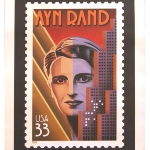
Ayn Rand remains a significantly influential philosopher among libertarians and American conservatives. Today, her books have sold in the millions, and she’s the subject of an Oscar-nominated documentary, a U.S. postage stamp, university courses, and a philosophical society devoted to the study of her thought.
Ayn Rand has been a major inspiration for the Tea Party movement, which has swept a new generation of Republicans and self-described conservatives into power.
(Anthem is Ayn Rand’s classic tale of a dystopian future o...)
1938(The Fountainhead's protagonist, Howard Roark, is an indiv...)
1943(In this series of essays, Ayn Rand presents her stand on ...)
1966(In this beautifully written and brilliantly reasoned book...)
1969(A collection of essays that sets forth the moral principl...)
(Author Ayn Rand's novel Ideal, available for the first ti...)
2015(In a scrap heap within an abandoned factory, the greatest...)
1957(To the world, he was a startlingly successful internation...)
(This collection of essays was the last work planned by Ay...)
1982(We the Living is the debut novel of the Russian-American ...)
1936(Today man's mind is under attack by all the leading schoo...)
1979When asked about religion, Rand answered: "Qua religion, no - in the sense of blind belief, belief unsupported by, or contrary to, the facts of reality and the conclusions of reason. Faith, as such, is extremely detrimental to human life: it is the negation of reason. But you must remember that religion is an early form of philosophy, that the first attempts to explain the universe, to give a coherent frame of reference to man's life and a code of moral values, were made by religion before men graduated or developed enough to have philosophy."
Rand was a thinker forged in the Russian revolution, which happened in her home city of St. Petersburg when she was around 12. Her family’s property was confiscated in the revolution. It happened at a formative moment of her life: She looked at the ideas of the Russian Revolution, which were equality and fairness, in the name of the people, and she saw that they led, in the experience of her family, to the seizure of their property. And she decided these ideals - fairness, equality, justice - were really just a cover for the state being able to do what it wanted and to trample over the rights of the individual.
So Rand was born as an individualist philosopher at that moment, in late 1917, early 1918, and then her ideas continued to develop in the context of the Cold War. And she began to see a global struggle between individualism, embodied in countries like the United States and the capitalist system, and collectivism, embodied in Soviet Russia, which she knew best, but also in Nazi Germany. So she fled Russia as a young woman and came to the United States.
Rand's political view's emphasized individual rights, she considered laissez-faire capitalism the only moral social system because in her opinion it was the only system based on the protection of those rights.
On the level of concrete policy, Rand defended a woman’s right to abortion and was a four-square supporter of freedom of speech (both “liberal” causes). She also attacked racism ( a “liberal” bugbear) as grossly collectivist. However, she rejected affirmative action policies (the favored “liberal” solution) for exactly the same reason.
Rand's rejection of what she deemed to be "primitivism" extended to the Middle East peace process in the 1970s. Following the Arab-Israeli War of 1973, Rand denounced Arabs as "primitive" and "one of the least developed cultures" who "are typically nomads". Consequently, Rand contended Arab resentment for Israel was a result of the Jewish state being "the sole beachhead of modern science and civilization on their (Arabs) continent" while decreeing that "when you have civilized men fighting savages, you support the civilized men, no matter who they are."
Ayn Rand is the founder of the philosophy of objectivism. She described it in an appendix to Atlas Shruggedas as "the concept of man as a heroic being, with his own happiness as the moral purpose of his life, with productive achievement as his noblest activity, and reason as his only absolute." In novels such as The Fountainhead and Atlas Shrugged, Rand dramatized her ideal individual, the producer who lives by his own effort and does not give or receive the undeserved, who honors achievement and rejects envy. Rand laid out the details of her world-view in nonfiction books such as The Virtue of Selfishness and Capitalism: The Unknown Ideal. The following overview will give you a solid foundation in the basics of her ideas.
Ayn Rand’s philosophy begins by embracing the basic fact that existence exists. Reality is, and in the quest to live we must discover reality’s nature and learn to act successfully in it. To exist is to be something, to possess a specific identity. This is the Law of Identity: A is A. Facts are facts, independent of any consciousness. No amount of passionate wishing, desperate longing or hopeful pleading can alter the facts. Nor will ignoring or evading the facts erase them: the facts remain, immutable.
In Rand’s philosophy, reality is not to be rewritten or escaped, but, solemnly and proudly, faced. One of her favorite sayings is Francis Bacon’s: "Nature, to be commanded, must be obeyed." Reality - that which exists - has no alternatives, no competitors, nothing "transcending" it. To embrace existence is to reject all notions of the supernatural and the mystical, including God.
Concerning morality, Rand argues, that its purpose is to teach us what is in our self-interest, what produces happiness. "Man has," she observes, "no automatic code of survival... His senses do not tell him automatically what is good for him or evil, what will benefit his life or endanger it, what goals he should pursue and what means will achieve them, what values his life depends on, what course of action it requires." This is what the science of ethics studies - and what Objectivism offers. "Man must choose his actions, values and goals," she summarizes, “by the standard of that which is proper to man - in order to achieve, maintain, fulfill and enjoy that ultimate value, that end in itself, which is his own life."
She thought capital punishment was morally just, but legally dangerous - because of the possibility of jury errors which could not be rectified after the death of the innocent man. She had no position on whether there should be a death penalty or not.
Rand acknowledged Aristotle as her greatest influence and remarked that in the history of philosophy she could only recommend "three A's" - Aristotle, Aquinas, and Ayn Rand.
Quotations:
"An individualist is a man who says: 'I'll not run anyone's life - nor let anyone run mine. I will not rule nor be ruled. I will not be a master nor a slave. I will not sacrifice myself to anyone - nor sacrifice anyone to myself.'"
"There is no difference between communism and socialism, except in the means of achieving the same ultimate end: communism proposes to enslave men by force, socialism - by vote. It is merely the difference between murder and suicide."
"What is greatness? I will answer: it is the capacity to live by the three fundamental values of John Galt: reason, purpose, self-esteem."
"Even if smog were a risk to human life, we must remember that life in nature, without technology, is wholesale death."
"The worst evil that you can do, psychologically, is to laugh at yourself. That means spitting in your own face."
"Man - every man - is an end in himself, not a means to the ends of others; he must live for his own sake, neither sacrificing himself to others nor sacrificing others to himself; he must work for his rational self-interest, with the achievement of his own happiness as the highest moral purpose of his life."
"There is no such thing as duty. If you know that a thing is right, you want to do it. If you don't want to do it - it isn't right. If it's right and you don't want to do it - you don't know what right is and you're not a man."
"The highest thing in a man is not his god. It's that in him which knows the reverence due a god. You are my highest reverence."
"I am. I think. I will."
"Anyone who fights for the future, lives in it today."
"I shall choose friends among men, but neither slaves nor masters. And I shall choose only such as please me, and them I shall love and respect, but neither command nor obey. And we shall join our hands when we wish, or walk alone when we so desire."
"In the temple of his spirit, each man is alone."
"Racism is the lowest, most crudely primitive form of collectivism."
Ayn Rand was highly intelligent, passionate about ideas, and strongly idealistic. She was known for having a fierce temper. She drove herself on a ruthless schedule: she worked seven days a week, for as many hours each day as she was able to write. It was not unusual for her to eat dinner at midnight.
Virginia Postrel, cultural critic, former Reason editor and author of several books including The Power of Glamour: Longing and the Art of Visual Persuasion, called Rand "very much a woman of her time."
"Her taste and personal style combined modernist design ideals with the movie glamour of the 1920s and '30s. They expressed who she wanted to be and how she wanted the world to be: scientific, strong, streamlined, and modern," Postrel said in an interview with The Atlas Society (TAS).
While many view Rand as an iconoclast, "her ideals of luxury in clothing and interior design are straight out of the costumes and sets of 1930s movies." Postrel said, and these styles showed up on her characters as well. Dagny Taggart, the executive heroine of Atlas Shrugged, notably wore a one-shouldered black evening gown that featured a cape that covered just one arm and shoulder.
Physical Characteristics: Ayn Rand was of average build with her height being approximately 5' 2" (157 cm). She had dark brown hair and dark brown eyes.
Quotes from others about the person
"A passionate hater of religion, Rand founded a cult around her own person, complete with rituals of excommunication; a passionate believer in rationality and logic, she was incapable of seeing the contradictions in her own work. She was a rationalist who was not entirely rational; she could not distinguish between rationalism and rationality. Of narrow aesthetic sympathies, she laid down the law in matters of artistic judgment like a panjandrum; a believer in honesty, she was adept at self-deception and special pleading. I have rarely read a biography of a writer I should have cared so little to meet." - Theodore Dalrymple
"[Her work] is both angry and exaltedly idealistic, a tortured hymn to integrity. In it one sees the union of passionate idealism with a profound scorn for those who… renounce the responsibility of translating their ideals into action and reality." - Barbara Branden
"I believe Ayn Rand's first love poem went: Roses are red/ violets are blue/ finish this poem yourself / you dependent parasite." - Stephen Colbert
"Ayn Rand is one of those things that a lot of us, when we were 17 or 18 and feeling misunderstood, we'd pick up. Then, as we get older, we realize that a world in which we're only thinking about ourselves and not thinking about anybody else, in which we're considering the entire project of developing ourselves as more important than our relationships to other people and making sure that everybody else has opportunity – that that's a pretty narrow vision." - Barack Obama
"There are two novels that can change a bookish fourteen-year old’s life: The Lord of the Rings and Atlas Shrugged. One is a childish fantasy that often engenders a lifelong obsession with its unbelievable heroes, leading to an emotionally stunted, socially crippled adulthood, unable to deal with the real world. The other, of course, involves orcs." - John Rogers
Ayn Rand married actor Frank O'Connor on April 15, 1929. They were together until his death in 1979.
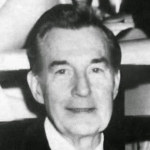
O'Connor gave up his acting ambitions to support Rand's work. Rand praised O'Connor's devotion to seeing her succeed: "Frank believed in me. He saw who I was and what I would become when no one else did, when we were both young and struggling and had nothing. We have the same sense of life."

Alan Greenspan was a devoted supporter of Ayn Rand's philosophy. Greenspan and Rand were friends until her death in 1982.
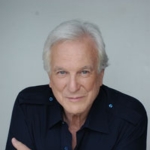
Nathaniel Branden was an associate and romantic partner of Ayn Rand, who contributed to the promotion of Objectivism.
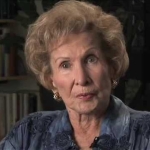
Barbara Weidman and her husband Nathaniel Branden were the followers and colleagues of Ayn Rand.
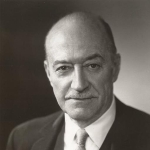
Ayn Rand was a friend of Henry Hazlitt and his wife.
